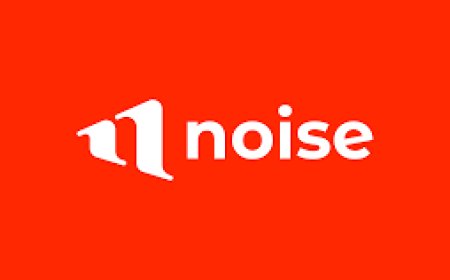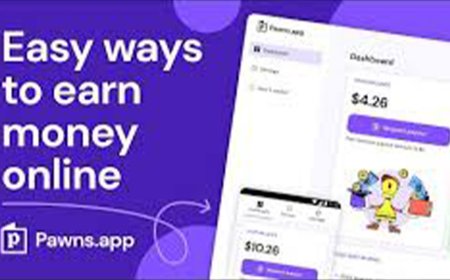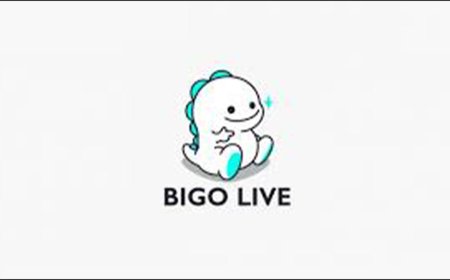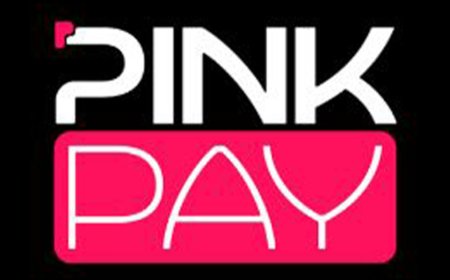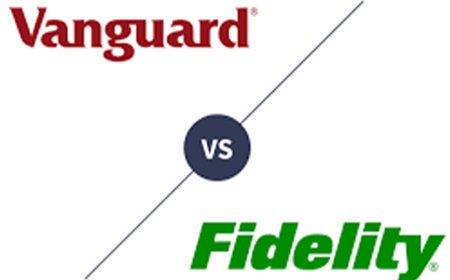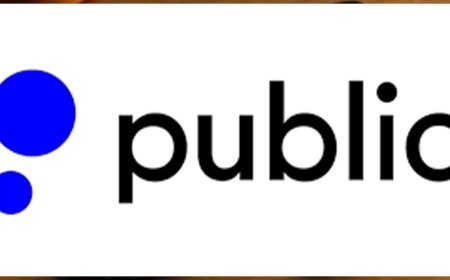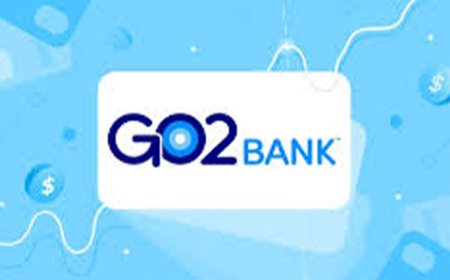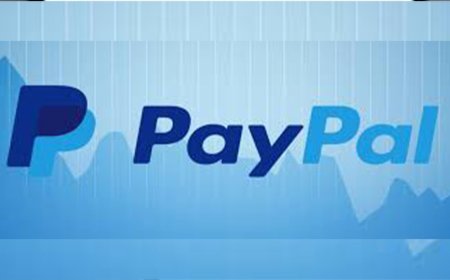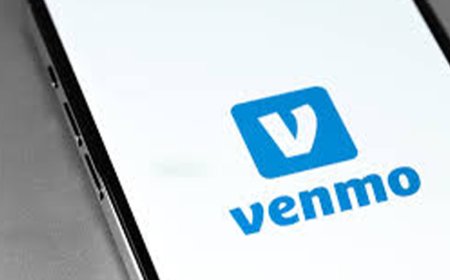How to Make Money with Affiliate Marketing in Africa: Beginner’s Guide for 2025
Learn how to make money with affiliate marketing in Africa in 2025, even as a beginner. This step-by-step guide covers choosing a niche, top affiliate programs for Africans, and tips to maximize earnings. Start your online income journey today.

Affiliate marketing is one of the most accessible and lucrative ways to earn money online in Africa in 2025. With no need to create your own products or invest significant capital, you can start earning commissions by promoting brands you love using just a smartphone and an internet connection. Whether you’re in Nigeria, Kenya, South Africa, Uganda, or any other African country, this beginner-friendly guide will show you how to launch a successful affiliate marketing business in 2025, even if you’re starting from scratch.
This comprehensive guide covers everything you need to know: what affiliate marketing is, why it’s thriving in Africa, step-by-step instructions to get started, the best affiliate programs for Africans, expert tips to maximize earnings, and how to avoid common pitfalls. If you’re ready to tap into Africa’s booming digital economy and build a sustainable online income, this guide is your roadmap to success.
Table of Contents
- What Is Affiliate Marketing?
- Why Affiliate Marketing Works Well in Africa
- Steps to Start Affiliate Marketing in Africa (2025 Edition)
- Top Affiliate Programs for Africans in 2025
- Tips to Maximize Your Affiliate Earnings
- Common Pitfalls and How to Avoid Them
- Final Thoughts
1. What Is Affiliate Marketing?
Affiliate marketing is a performance-based business model where you earn commissions by promoting products or services from other companies. You sign up for an affiliate program, receive a unique tracking link, and share it with your audience through a blog, social media, or other platforms. When someone clicks your link and makes a purchase, you earn a percentage of the sale.
Example: If you promote an online course platform like Coursera and someone signs up for a course through your link, you could earn $10-$50 per sale, depending on the program’s commission structure.
This model is ideal for beginners because it requires no product creation, inventory, or customer service just the ability to connect brands with customers. In 2025, affiliate marketing is a $17 billion industry globally, and Africa’s growing e-commerce market makes it a prime opportunity for anyone with an internet connection.
2. Why Affiliate Marketing Works Well in Africa
Africa’s digital landscape is booming, making affiliate marketing a perfect side hustle in 2025. Here’s why it’s thriving:
- Low Startup Costs: You only need a smartphone, internet access, and a platform (like a free blog or social media account) to start.
- Growing Online Audience: Over 60% of South Africans shop online, and e-commerce is expanding rapidly in Nigeria, Kenya, and Ghana, driven by increased mobile usage.
- Diverse Niches: From fintech to fashion, travel to tech, there’s a niche for every interest, allowing you to target specific African audiences.
- Flexible Payment Options: Many programs offer payouts via mobile money (e.g., M-Pesa), PayPal, or crypto, catering to local preferences.
- Mobile-First Market: With over 90% of South Africans accessing the internet via smartphones, mobile-optimized affiliate strategies are highly effective.
For those exploring other online income streams, check out our guides on Top 7 GPT Sites for Africans in 2025 or High-Paying Online Focus Groups to complement your affiliate efforts.
3. Steps to Start Affiliate Marketing in Africa (2025 Edition)
Follow these beginner-friendly steps to launch your affiliate marketing business in Africa:
Step 1: Choose Your Niche
Your niche is the topic or industry you’ll focus on. Pick something you’re passionate about and that has a sizable audience in Africa. Popular niches include:
- Personal Finance: Promote budgeting apps, investment platforms, or crypto exchanges like Binance.
- Online Business: Share tools like Canva, Shopify, or web hosting services.
- Beauty and Skincare: Recommend products from local or global brands like Superbalist or Amazon.
- Technology: Review gadgets, smartphones, or load-shedding solutions like solar inverters.
- Travel: Promote booking platforms like Travelstart or Airbnb.
Tip: Use tools like Google Trends or social media platforms to research trending topics in your country. For inspiration, explore microtask sites like Jumia or Kilimall to see what products Africans are buying.
Step 2: Find Affiliate Programs
Join programs that align with your niche and offer good commissions. Here are some top affiliate programs for Africans in 2025:
- Jumia Affiliate Program (Jumia KOL): Earn up to 11% commission on sales from Africa’s leading e-commerce platform. Ideal for promoting electronics, fashion, and home goods.
- Amazon Associates: Offers 1-20% commissions on millions of products. Great for global appeal, though payouts are via PayPal or bank transfer.
- Travelstart Affiliate Program: Earn commissions on flight and hotel bookings, perfect for travel bloggers or influencers.
- ShareASale and CJ Affiliate: These networks connect you to thousands of global brands with commissions ranging from 5-30%.
- Binance Affiliate Program: Offers up to 40% commission on crypto trading fees, ideal for finance-focused audiences in Africa.
Tip: Start with local programs like Jumia or Kilimall, as they resonate with African consumers and often support mobile money payouts.
Step 3: Create Your Platform
You need a platform to share your affiliate links. Here are the best options for beginners:
- Blog or Website: Use free platforms like WordPress.com or Wix to create a blog for reviews, tutorials, or guides. Blogs are great for SEO and long-term passive income.
- YouTube Channel: Create videos showcasing products (e.g., “Top 5 Solar Gadgets for Load-Shedding”). Add affiliate links in video descriptions.
- Social Media: Platforms like Instagram, TikTok, WhatsApp, or LinkedIn are perfect for quick, engaging content. Use Linktree to manage multiple affiliate links in your bio.
- Email Newsletter: Build an email list to share promotions and updates directly with your audience.
Tip: Start with a platform you’re comfortable with. If you love video, try YouTube or TikTok; if writing is your strength, start a blog.
Step 4: Create Valuable Content
Your content should solve problems or provide value to your audience. Examples include:
- Product Reviews: “Is This Jumia Smartphone Worth It? My Honest Review.”
- Tutorials: “How to Book Cheap Flights with Travelstart in Nigeria.”
- Best-of Lists: “Top 5 Budget Laptops Under $300 on Amazon.”
- Comparison Posts: “Jumia vs. Kilimall: Which Offers Better Deals?”
Tip: Be authentic and transparent. Disclose affiliate links (e.g., “This post contains affiliate links”) to build trust and comply with regulations like South Africa’s POPIA.
Step 5: Drive Traffic to Your Content
More traffic means more clicks and commissions. Here’s how to attract an audience:
- SEO: Optimize your blog or YouTube videos with local keywords (e.g., “best smartphones in Nigeria 2025”). Use tools like Google Keyword Planner to find high-traffic keywords.
- Social Media: Post engaging content on Instagram Reels, TikTok, or WhatsApp Status. Share deals or tips that resonate with your audience (e.g., “Save on data with these apps”).
- Email Marketing: Use free tools like Mailchimp to send newsletters with affiliate links to your subscribers.
- Local Communities: Engage in African online forums, WhatsApp groups, or Facebook communities to share your content organically.
Step 6: Track and Optimize
Use analytics tools to monitor your performance:
- Affiliate Dashboards: Most programs (e.g., Jumia, Amazon) provide dashboards to track clicks, conversions, and earnings.
- Google Analytics: Track website traffic to see which pages or posts drive the most clicks.
- Bitly: Shorten and track affiliate link clicks for free.
Focus on what works best whether it’s a specific product, platform, or content type and double down on those strategies.
4. Top Affiliate Programs for Africans in 2025
Here’s a deeper look at programs tailored for African markets:
- Jumia Affiliate Program (KOL): Pays up to 11% commission. Promote products like smartphones, fashion, or home appliances that appeal to African shoppers.
- Kilimall Affiliate Program: Offers up to 8% commission and is popular in Kenya and Uganda for electronics and fashion.
- Amazon Associates: Ideal for global products, with commissions ranging from 1-20% depending on the category. Use Amazon’s SA-specific landing pages for local relevance.
- Travelstart Affiliate Program: Earn commissions on flight, hotel, and car rental bookings, perfect for travel bloggers targeting African audiences.
- Binance Affiliate Program: High commissions (up to 40%) for promoting crypto trading, appealing to Africa’s growing fintech audience.
- ShareASale: Connects you to global brands with commissions of 5-30%. Great for niche products like software or fashion.
- Ipay Africa: Offers 10% recurring commissions for promoting payment processing solutions, ideal for business-focused audiences.
Tip: Research each program’s payment terms (e.g., Pay per Sale, Pay per Lead) and ensure they offer payout methods accessible in your country, like mobile money or PayPal.
5. Tips to Maximize Your Affiliate Earnings
To boost your affiliate income in Africa, follow these strategies:
- Focus on Local Relevance: Promote products that solve local problems, like load-shedding gadgets (e.g., solar panels, power banks) or budget-friendly tech.
- Optimize for Mobile: Since most Africans access the internet via smartphones, ensure your blog or content is mobile-friendly.
- Leverage Local SEO: Use keywords like “best deals in Nigeria” or “cheap flights in Kenya” to attract organic traffic from Google.
- Engage with Your Audience: Respond to comments on social media or blog posts to build trust and loyalty.
- Use Visual Content: Create Instagram Reels or TikTok videos showcasing products in action (e.g., unboxing a Jumia gadget) to drive engagement.
- Test and Experiment: Try different niches, products, and platforms to find what resonates with your audience. Track results to refine your approach.
- Stay Compliant: Follow local regulations like South Africa’s Consumer Protection Act (CPA) and POPIA by disclosing affiliate links and protecting user data.
5. Common Pitfalls and How to Avoid Them
mistakes to succeed in affiliate marketing:
- Choosing Irrelevant Products: Promote products your audience cares about to avoid losing trust.
- Being Too Salesy: Focus on value-driven content (e.g., reviews, tutorials) rather than aggressive sales pitches.
- Ignoring Local Regulations: Disclose affiliate links and comply with data protection laws like POPIA to avoid legal issues.
- Joining Scam Programs: Avoid programs requiring upfront fees or promising unrealistic earnings (e.g., “$500/day”). Stick to reputable networks like ShareASale or Jumia.
- Not Tracking Performance: Use analytics to identify high-performing content and optimize for better results.
6. Final Thoughts
Affiliate marketing in Africa is a powerful opportunity to earn passive income in 2025, thanks to the continent’s growing e-commerce and mobile-first audience. While it’s not a get-rich-quick scheme, consistency and strategic content creation can lead to a sustainable income stream. Start with a niche you’re passionate about, join trusted programs like Jumia or Amazon Associates, and focus on building trust with your audience.
For quick cash to fund your affiliate business, explore complementary side hustles like high-paying survey sites or online focus groups for Africans.
Reinvest these earnings into tools like a paid blog domain or social media ads to scale your affiliate marketing efforts.
With dedication and the right strategies, you can turn affiliate marketing into a profitable venture from anywhere in Africa. Start today, and your first commission could be just a click away.
Quick Start Checklist
- Choose a niche that aligns with your interests and African market trends.
- Sign up for 2-3 affiliate programs (e.g., Jumia, Amazon, Travelstart).
- Create a platform (blog, YouTube, or social media) to share your content.
- Produce valuable, audience-focused content with affiliate links.
- Drive traffic using SEO, social media, or local communities.
- Track performance and optimize for higher conversions.
What's Your Reaction?







